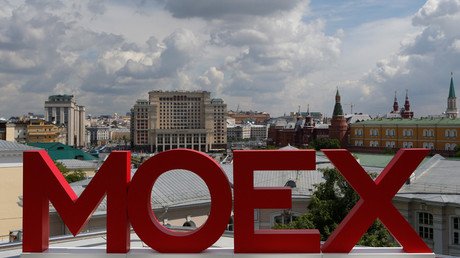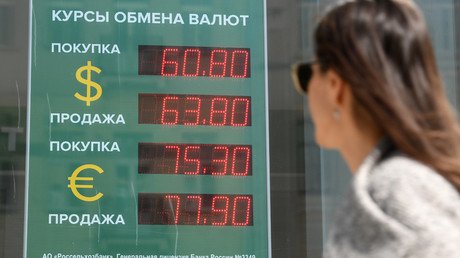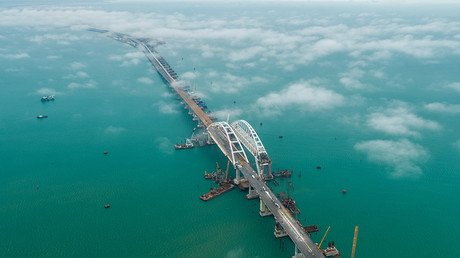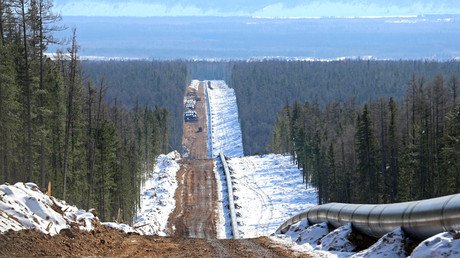Russian ruble crashes but fall may be temporary – analysts
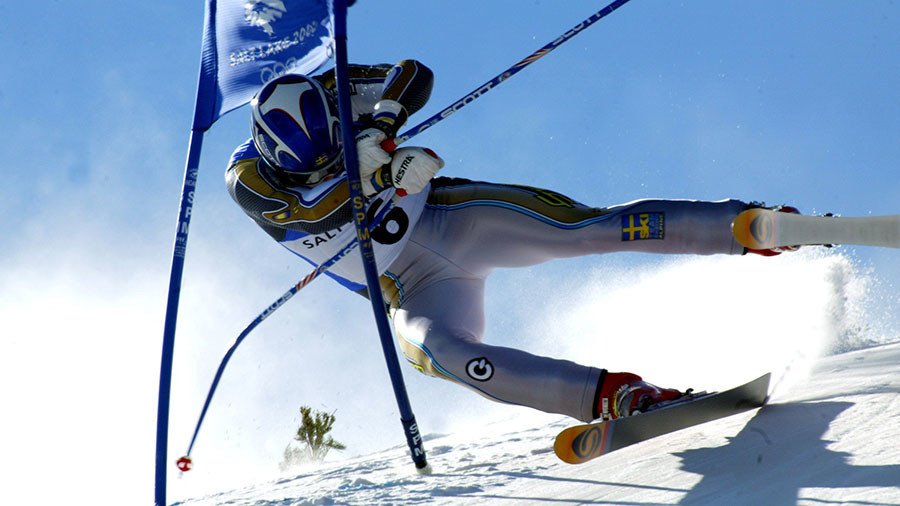
The Russian currency has fallen to a two-year low as political pressure from Washington is forcing foreign investors to abandon positions on the Russian market. However, the sell-off may be temporary, analysts say.
On Wednesday, the ruble fell to 64 against the dollar and 80 against the euro – levels that were last seen in late 2016. However, strong oil prices, which are staying at multi-year highs, may mitigate the losses.
“On the face of it, this suggests that the ruble could regain some ground in the near term if oil prices remain high,” analyst Finn McLaughlin at Capital Economics told Business Insider.
However, the negative effect of sanctions could also hurt the ruble and the Russian stock market. “The aggressive policy of Western countries towards Russia forces long-term investors to close their positions in Russian securities. Despite the limited list of companies affected by the sanctions, market participants perceived the new signal as a signal for the sale of all Russian instruments, because as new reasons for discontent with Moscow appear, the list of prohibited assets may increase,” Mikhail Mashchenko, an analyst at social network for investors eToro told RT.
The sale of high-yield Russian bonds (OFZs) have led to a drop in some issues to multi-month lows, which also affected the ruble exchange rate, which dropped to its lowest levels in a couple of years, the analyst added.
Another potential risk for the Russian economy from sanctions may be rising inflation, according to Chief Analyst at Rosbank Evgeny Koshelev.
“I think the surge in inflation, the weakening of consumer and investment confidence, will weaken GDP growth rates in 2018 to zero or even negative values (from 0.0% to -1.0%). The key rate cut is postponed until the better times,” he told RT.
The correction is not yet significant enough for the Central Bank to take drastic measures such as rate hikes, the expert added. “The rate increase is also premature, since at the moment the scale of the correction of the markets is not very significant,” he said.
The head of Russia's Central Bank Elvira Nabiullina confirmed as much on Tuesday. "The Central Bank has a wide range of instruments to act in different situations if there are risks for financial stability. In our opinion, there are no such risks at the moment. There is no need to apply any systemic measures, but we will monitor the situation, and, if necessary, make corrections,” said Nabiullina.
While previous US sanctions were taken less seriously by the Russian stock market, the latest round has been recognized as more dangerous. That's because new penalties forbid business with many large exporters, according to Anastasia Ignatenko, leading analyst at TeleTrade.
“As you know, in the list there are Oleg Deripaska, Victor Vekselberg and Suleiman Kerimov – people representing many sectors of the Russian economy. And the example of the company RUSAL, which sold in the US market metal worth $1.4 billion a year, immediately revealed the future problems of companies that are under sanctions,” she said.
The analyst predicts that the waves of rebounds will be replaced by new sales. “With a high probability, the MICEX and RTS indices will return to the minimum levels of the previous year, or as close as possible to them, which means that the fall will continue. On average, the indices can lose 10-15 percent more, and the dollar-traded RTS will fall more rapidly if the dollar continues to appreciate against the ruble,” Ignatenko added.
For more stories on economy & finance visit RT's business section
